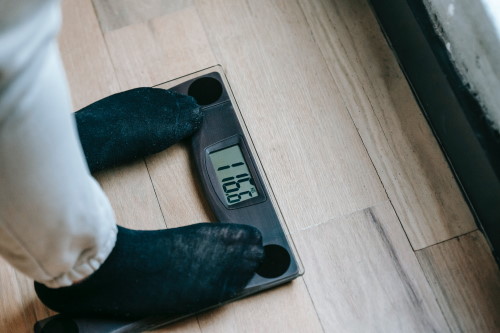An obesity expert reviews the strategies that helped Oprah Winfrey slim down and offers a half dozen takeaways for the rest of us.
At recent events to promote a new film she is coproducing, The Color Purple, Oprah Winfrey hit the red carpet in skintight purple dresses that showcased her dramatically slimmed-down figure.
Oprah, 69, shared her weight loss tactics in an interview with People on December 14. Her big reveal: She is taking prescription weight loss medication for the first time.
BREAKING: 1 Cup of This Melts Belly and Arm Fat (Take Before Bed)
“The fact that there’s a medically approved prescription for managing weight and staying healthier, in my lifetime, feels like relief, like redemption, like a gift, and not something to hide behind and once again be ridiculed for,” Winfrey said in the interview. “I’m absolutely done with the shaming from other people and particularly myself.”
In the past, Oprah said she felt she should have the willpower to lose weight without the aid of medication. “I no longer feel that way. I now use [weight loss medication] as I feel I need it, as a tool to manage not yo-yoing,” Oprah said, without naming the drug she takes.
This is not her only weight loss strategy, Oprah said. She also shared that she hikes regularly — aiming for three to five miles every day — and that she eats her last meal of the day by 4 p.m. She also said she strives to drink a gallon of water every day.
She said she knows there’s a lot of buzz around her body size, especially amid the surging popularity of newer injected weight loss drugs like Wegovy and Zepbound. But Oprah emphasized that medication isn’t the only reason she’s lost weight.
“I worked so damn hard,” Oprah told the magazine. “I know that if I’m not also working out and vigilant about all the other things, it doesn’t work for me.”
Can Oprah’s Weight Loss Routine Work for You?
Given how long Oprah has been a very public face of weight loss — both as a talk show host and media mogul and as an investor in WW (Weight Watchers) — you might be wondering what lessons you can take away from her latest revelations.
We asked Melanie Jay, MD, an associate professor and the director of the NYU Langone Comprehensive Program on Obesity in New York City, about the pillars of successful weight loss and how well Oprah’s strategies might work for other people. Here Dr. Jay shares six insights.
1. Expert Support Is Key
Q: Of all the things Oprah talks about doing to lose weight, is there one piece that you think is most important and has the biggest impact on weight loss?
Melanie Jay: Oprah must have a team of physicians and other experts supporting her. My one piece of advice would be to obtain expert support. This could be from your physician or a trusted program.
2. The Most Effective Lifestyle Interventions Are Multifaceted
Q: How should people with obesity think about all the things Oprah tried if they’re trying to make changes to lose weight?
MJ: The most effective lifestyle interventions have many components. These include diet, exercise, behavior change, social support, and may also include sleep hygiene and stress management. [Programs that promote these interventions] are intensive, with 14 or more support sessions within six months. Some examples are the diabetes prevention programs offered at many YMCAs and Weight Watchers.
But even with intensive programs, many people do not lose weight with lifestyle alone. Medications generally lead to more weight loss than lifestyle change alone.
3. It May Not Be Okay to Use Weight Loss Drugs for ‘Maintenance’
Q: Oprah says she turns to weight loss medication only on an as-needed basis; for instance, she says she used these drugs before Thanksgiving to avoid significant holiday-related weight gain. Are weight loss medications safe and effective for people to use this way?
MJ: Obesity is a chronic disease. These medications generally require long-term, perhaps lifelong use. I do not recommend taking them only occasionally. The safety and efficacy of these medications for short-term use has not been tested.
4. Diet Is More Effective Than Exercise Alone for Weight Loss
Q: How much does exercise matter for weight loss if somebody is also counting calories and doing intermittent fasting? And do you think hiking, as Oprah does, would work for most people if their goal with exercise is to lose weight?
MJ: Exercise is extremely important for weight maintenance and overall cardiovascular health. In the setting of using anti-obesity medications and for overall health as we age, resistance training is important for maintaining muscle mass. In general, diet is more effective than exercise alone for weight loss. Any type of walking is fine. Many of us do not have everyday access to hiking trails, although there may be an added mood benefit of being outdoors in nature.
5. Drinking More Water Might Help With Weight Loss, but the Evidence Is Not Strong
Q: How important is drinking water if you’re trying to lose weight? And is a gallon of water a day the right amount?
MJ: Some studies show that water helps with weight loss, but the evidence is not strong. It is important to substitute sweetened beverages like soda, juice, or most Starbucks drinks with water. A gallon of water is fine when spread throughout the day. The rate of intake matters — don’t force your intake. Drinking a gallon in 30 minutes, for instance, could be dangerous.
TRENDING: Diabetes Breakthrough Leaves Doctors Speechless - Try This Tonight
6. Counting Calories or Points Works for Some People, Not Others
Q: What about counting calories or WW points the way Oprah does — is this the best approach to managing what you eat, or is it more or equally important to think about what types of foods you consume or what types of foods you should limit or eat in moderation?
MJ: Oprah is an expert in what works for her; she has worked hard at it her entire life. Counting calories will work for some people but will be untenable for others. Same with various diets.
We do know, however, that self-monitoring and tracking what one eats is helpful and may lead to greater weight loss.
Most people will benefit from limiting sweetened beverages, sweets, fast food, processed and fatty meats, and processed food. Most people can benefit from eating more plants — vegetables and fruit. The best diets are the ones people can stick to, because eventually everyone will reach a plateau and will have to continue the change in order to mitigate weight regain.









